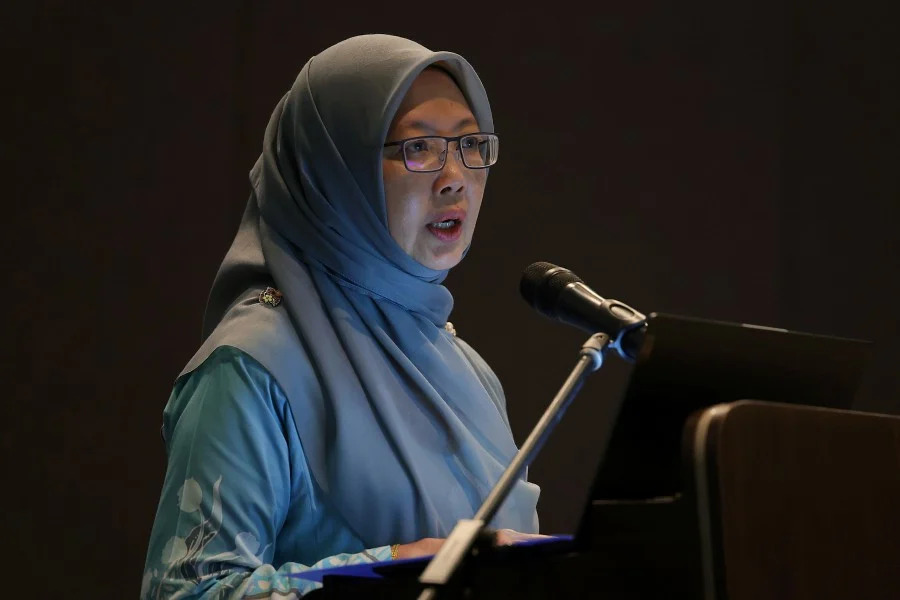
KUALA LUMPUR – The Health Ministry hopes that the approach to drug addicts will be addressed through treatment and rehabilitation, as opposed to the current method which is more geared towards enforcement and imprisonment.
Health Minister Dr Zaliha Mustafa said it was because drug addiction is a type of ‘chronic disease’ that needs to be dealt with more effectively, rather than resorting to a punishment approach that causes drug users and addicts to be trapped in the legal process.
She also welcomes any effort that calls for individuals arrested for drug addiction and abuse to be dealt with through a public health approach.
“We know that prison is not a place to provide treatment and rehabilitation to drug users and addicts and some of them have to be isolated in treatment and rehabilitation centres, which can inhibit their level of functionality as productive members of society.
“Medical practitioners in rehabilitation centres and detention centres face challenges when offenders struggle with the symptoms of withdrawal syndrome due to drug addiction, or mental and physical illness due to drugs used.
“This brings difficulties in forming an effective treatment and medical plan and meets the requirements of the law, hinders the need for appropriate treatment and rehabilitation, in addition to delaying the legal process.
“As a result, the prognosis of the disease will worsen and the court and legal system will become more congested,” he said when speaking at the Malaysian Addiction and Forensic Psychiatry Symposium here today.
Also present was the Monash University Malaysia president and pro vice-chancellor Prof Datuk Adeeba Kamarulzaman.
Dr Zaliha stressed that efforts to deal with drug abuse and addiction need to be implemented through a multi-disciplinary and ministerial approach, particularly involving collaboration between the Health Ministry and the Home Ministry.
However, she said, the Health Ministry through the Addiction and Forensic Psychiatry Subspecialty Programme must play an important role in the medical treatment and rehabilitation of drug users and addicts.
She also suggested that a more interactive case referral system between addiction and forensic psychiatric services and other stakeholders be created to ensure there is no patient dropout issue.
“We must realise and admit that there are many gaps that should be addressed between law enforcement and medical treatment for drug users
“Preventive intervention and medical treatment in local and scattered communities is also a challenge to interventions that want to be implemented in rehabilitation and detention centres.
“Other challenges from a legal point of view must also be overcome to ensure the channelling, continuity and sustainability of treatment and rehabilitation are provided, and treatment with a community-based approach can be the catalyst for the desired change,” she said.
– NST









